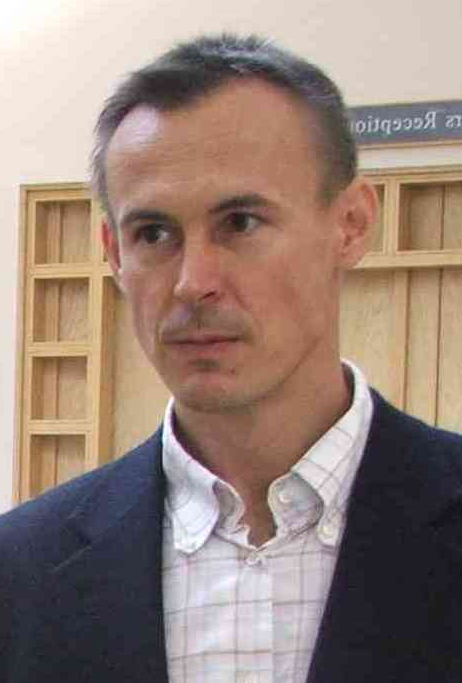
Main menu
You are here
Zoltán Szombathy
- Department of Arabic Studies, Eötvös Loránd University
- Academic Title: PhD (2001)
- Email: szombathy.zoltan@btk.elte.hu
- Phone: +36 (1) 411-6500, ext. 2197
- List of Publications: MTMT
- CV
- Social history and historical anthropology of the Middle East
- Islam in Sub-Saharan Africa
- Islam in Southeast Asia
- Swahili language and culture
- Spirit cults in the Islamic world
- „Motives and Techniques of Genealogical Forgery in Pre-modern Muslim Societies”, in Sarah Savant – Helena de Felipe (eds.): Genealogy and Knowledge in Muslim Societies. Understanding the Past. Edinburgh University Press, Edinburgh 2014. 24-36.
- Mujūn: Libertinism in Mediaeval Muslim Society and Culture. Gibb Memorial Trust – Oxbow Books, Oxford 2013.
- „Premodern Ethnography. A Cushitic Custom Described and Explained by Mediaeval Arab Observers”, The Arabist. Budapest Studies in Arabic XXXII (2013) 35–60.
- „Ghūl”, in Encyclopaedia of Islam. Brill, Leiden – Boston 20133. 144–46.
- „Between Myth and Genealogy. A Lineage History in Arabic from Ghana”, in Pál Fodor et al. (eds.): More Modoque. Festschrift für Miklós Maróth zum siebzigsten Geburtstag. Forschungszentrum für Humanwissenschaften der Ungarischen Akademie der Wissenschaften, Budapest 2013. 241–51.
- „Mandinka Kinship and Politics versus Arabic Vocabulary in a Chronicle from Guinea-Bissau”, in Seyni Moumouni – Viera Pawlikova-Vilhanova (eds.): Le temps des Oulèmas. Les manuscrits africains comme sources historiques. Niamey 2009. 281–96. (Etudes Nigériennes 61.)
- „Actions speak louder than words. Reactions to lampoons and abusive poetry in medieval Arabic society”, in Christian Lange – Maribel Fierro (eds.): Public Violence in Islamic Societies. Power, Discipline, and the Construction of the Public Sphere, 7th-19th Centuries CE. Edinburgh University Press, Edinburgh 2009. 87–116.
- „Freedom of Expression and Censorship in Mediaeval Arabic Literature”, Journal of Arabic and Islamic Studies VII (2007) 1–24.
- The History of Bidyini and Kaabu. Two Chronicles in Arabic from Guinea-Bissau. The Avicenna Institute of Middle Eastern Studies, Piliscsaba 2007. [In collaboration with Éva Sebestyén.]
- „Animism”, in Encyclopaedia of Islam. Brill, Leiden 20073. I, 116–17.
- „On Wit and Elegance: The Arabic Concept of Úarf”, in B. Michalak-Pikulska – A. Pikulski (eds.): Authority, Privacy and the Public Order in Islam. Proceedings of the 22nd Congress of the Union Europenne des Arabisants et Islamisants. Uitgeverij Peeters, Leuven – Paris – Dudley [MA] 2006. 101–19.
- „Some Notes on the Impact of the Shucūbiyya on Arabic Genealogy”, in Éva Apor – István Ormos (eds.): Goldziher Memorial Conference. Library of the Hungarian Academy of Sciences, Budapest 2005. 255–69.
- „Some Notes on a Poetic Convention”, Alifbâ. Studi Arabo-Islamici e Mediterranei XIX (2005) 115–125.
- „Ridiculing the Learned. Jokes about the Scholarly Class in Medieval Arabic Literature”, Al-Qantara XXV/1 (2004) 93–117.
- „Stop and Laugh over the Deserted Camping-Ground. Some Odd Uses of Imru’ al-Qays’s Ode”, in Miklós Maróth (ed.): Problems in Arabic Literature. The Avicenna Institute of Middle Eastern Studies, Piliscsaba 2004. 151–167.
- The Roots of Arabic Genealogy. A Study in Historical Anthropology. The Avicenna Institute of Middle Eastern Studies, Piliscsaba 2003.
- „Nasab: On the History of a Concept”, The Arabist. Budapest Studies in Arabic XXVI/XXVII (2003) 71–82.
- „The Social Functions of Genealogy in Muslim Societies”, Studia Islamica XCV (2002) 1–36. Reprinted as „Genealogy in Medieval Muslim Societies”, in Abdullah Saeed (ed.): Islamic Political Thought and Governance. Critical Concepts in Political Science. I–IV. Routledge, London – New York 2010. III, 49–80.
- „Some Notes on Spirit Possession and Islam”, The Arabist. Budapest Studies in Arabic XXIII (2001) 197–210.
- „The Nassâbah. Anthropological Fieldwork in Mediaeval Islam”, Islamic Culture LXXIII/3 (1999) 61–108.
Current research projects include the role of mediation and informal personal networks in medieval Muslim society; the interplay of ethnicity and religion in various parts of the Muslim world; and the first book-length study in Hungarian on Islam in Sub-Saharan Africa.
- Member of the editorial board of Acta Orientalia Academiae Scientiarium Hungaricae


